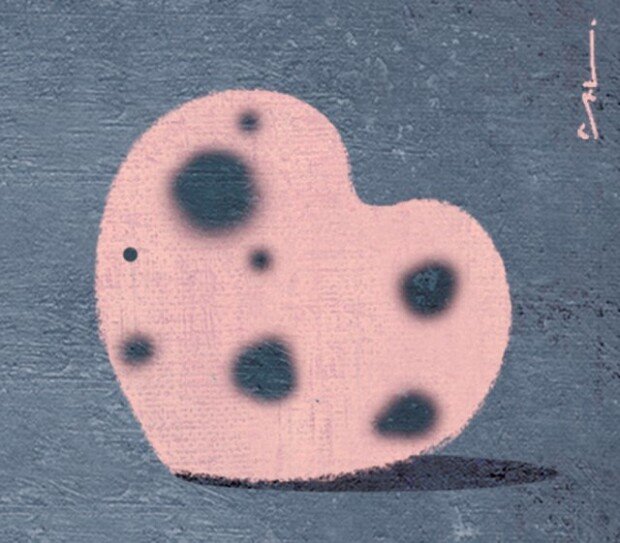What too much affection does to me
What too much affection does to me
Posted February. 06, 2021 07:29,
Updated February. 06, 2021 07:29

“Being too warm-hearted to put things out of my mind and fall asleep.” Korean scholar Lee Jo-nyeon wrote this phrase in the last part of his poetry. It was as early as the end of the Goryeo Dynasty when it was published. Since then it has always been well received by many readers. What has stayed intact is not just the poetry's phrases but the emotions and feelings that the writer turned into an artistic writing. It resonates even with us today as poetry sometimes travels time.
Whereas Mr. Lee's "Dajeongga,” meaning a chant of affection, dates back to the end of the Goryeo Dynasty, Kim Kyung-mi's "Dajeongga” is a thing of the present where we are living. This chant admires spring season. The feeling of affection seems like spring rain, which sounds sweet on one hand and bitter on the other hand. The river of emotions overflows during spring days when we feel awkwardly disturbed and confused. However, we today lose track of seasonal signs in modern society so we do not need to appreciate the chant only during a specific period of the year.
Here is a common misunderstanding: The more you have, the better it is. Money is a virtue and I wish that I were a rich; or power is absolute so the powerful must be happier than us. Likewise, as "Dajeong” means that you have a lot of affections in your heart, it should be considered good stuff. However, the more affectionate you are, the ailing your heart is. As you grow more affectionate, you become sadder and more depressed because you come to want more. Affection is a desirable human quality but why does it hurt us? Today's "Dajeongga” only sounds bitter without any sweetness in it.
The poet must have known the answer to this question. We readers can make a guess. We all are not able to be freed from the shackles of days when being affectionate turns into a weakness; affection only returns to you with scars; and affection has no use at all. No matter how hard we try to remove emotional swings, things are still harsh on us. If another version of "Dajeongga” is published by someone else in the future, I hope to hear that it is perfectly safe and okay to become as affectionate as possible and accept it comfortably.
Headline News
- Med professors announce intention to leave hospitals starting Thursday
- Bridge honoring Sgt. Moon Jae-sik unveiled in Pennsylvania
- Chief of Staff Chung tells presidential secretaries to stay away from politics
- US FTC bans noncompete agreements
- N. Korea launches cyberattacks on S. Korea's defense companies







